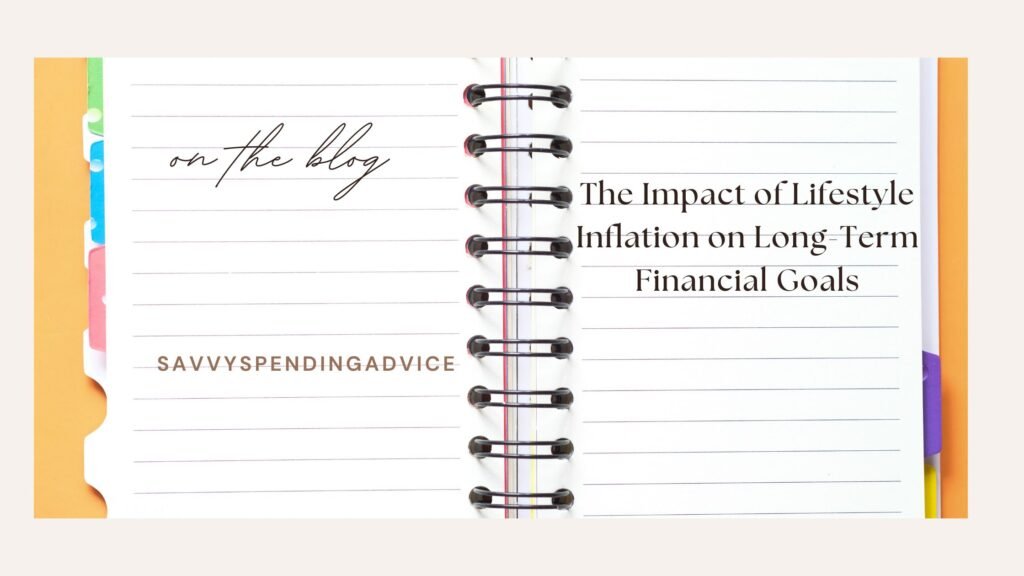
As your income grows, it’s tempting to upgrade your lifestyle—buying a bigger house, dining at expensive restaurants, or splurging on luxury vacations. While rewarding yourself is important, lifestyle inflation can quietly erode your financial future, making it harder to save, invest, and achieve long-term financial freedom.
In this post, we’ll explore what lifestyle inflation is, why it happens, and how to control it while still enjoying life.
What is Lifestyle Inflation?
📌 Definition: Lifestyle inflation (or lifestyle creep) occurs when your spending increases as your income rises, leaving you with little to no extra savings.
✅ Example:
✔ You get a $10,000 raise at work. Instead of saving or investing the extra income, you upgrade to a more expensive apartment, buy a new car, and dine out more often.
✔ At the end of the year, despite earning more, you still live paycheck to paycheck because your expenses increased along with your salary.
💡 Key Insight: Lifestyle inflation prevents wealth-building and can delay financial independence.
Why Does Lifestyle Inflation Happen?
Several psychological and societal factors contribute to lifestyle inflation:
✔ Social Pressure & Comparison: Seeing friends, colleagues, or influencers with luxury cars, designer clothes, or exotic vacations can tempt you to keep up.
✔ The “I Deserve It” Mentality: After working hard, it’s natural to want to reward yourself, but frequent splurges can hurt your finances.
✔ Lack of a Savings Plan: Without clear savings goals, extra income often gets spent instead of being invested.
✔ Easy Access to Credit: Credit cards and buy-now-pay-later services make it easier to finance a more expensive lifestyle than you can truly afford.
💡 Reality Check: Earning more won’t make you financially secure if you don’t control spending habits.
How Lifestyle Inflation Hurts Your Financial Goals
1️⃣ Delays Financial Freedom: More spending means fewer savings, making it harder to retire early or achieve financial independence.
2️⃣ Increases Debt: Upgrading your lifestyle without increasing savings often leads to reliance on credit cards and loans.
3️⃣ Limits Investment Growth: Instead of investing in assets that grow wealth, money is spent on depreciating items like luxury cars or gadgets.
4️⃣ Reduces Emergency Preparedness: If you don’t save, you may struggle during job losses, medical emergencies, or unexpected expenses.
💡 Example: Saving $500/month instead of increasing expenses could grow to $1.2 million in 30 years (assuming a 7% annual return).
How to Control Lifestyle Inflation Without Feeling Deprived
1. Follow the 50/30/20 Rule
📌 Allocate your income wisely:
✔ 50% for needs (rent, bills, food)
✔ 30% for wants (entertainment, travel, shopping)
✔ 20% for savings & investments
💡 Tip: When you get a raise, increase your savings rate before upgrading your lifestyle.
2. Automate Your Savings
📌 Set up automatic transfers to your savings and investment accounts before spending money.
✅ How?
✔ Direct 20-30% of every raise into investments before adjusting your lifestyle.
✔ Use apps like YNAB, Mint, or Acorns to track and automate savings.
💡 Tip: Treat savings as a fixed expense, just like rent or utility bills.
3. Practice “Stealth Wealth”
📌 Avoid unnecessary luxury spending just to impress others.
✅ Ways to enjoy life without lifestyle inflation:
✔ Upgrade your lifestyle gradually instead of all at once.
✔ Invest in experiences over things—memories last longer than material goods.
✔ Keep a frugal mindset even as income rises.
💡 Tip: Many millionaires live below their means—think Warren Buffett, who still lives in his modest home.
4. Increase Income, Not Just Expenses
📌 Use extra income to create long-term wealth.
✅ Smart ways to use a raise or bonus:
✔ Pay off high-interest debt first.
✔ Max out 401(k) and Roth IRA contributions.
✔ Invest in stocks, real estate, or a side business.
✔ Save for big purchases instead of financing them.
💡 Tip: Build passive income streams instead of just upgrading your lifestyle.
Final Thoughts: Balance Lifestyle and Financial Goals
Enjoying a higher income is great, but avoiding unnecessary lifestyle inflation is key to long-term wealth. The goal isn’t to deprive yourself but to spend intentionally while still growing your savings and investments.
💡 Want more personal finance tips? Subscribe to SavvySpendingAdvice.com for expert strategies on budgeting, investing, and wealth-building!
